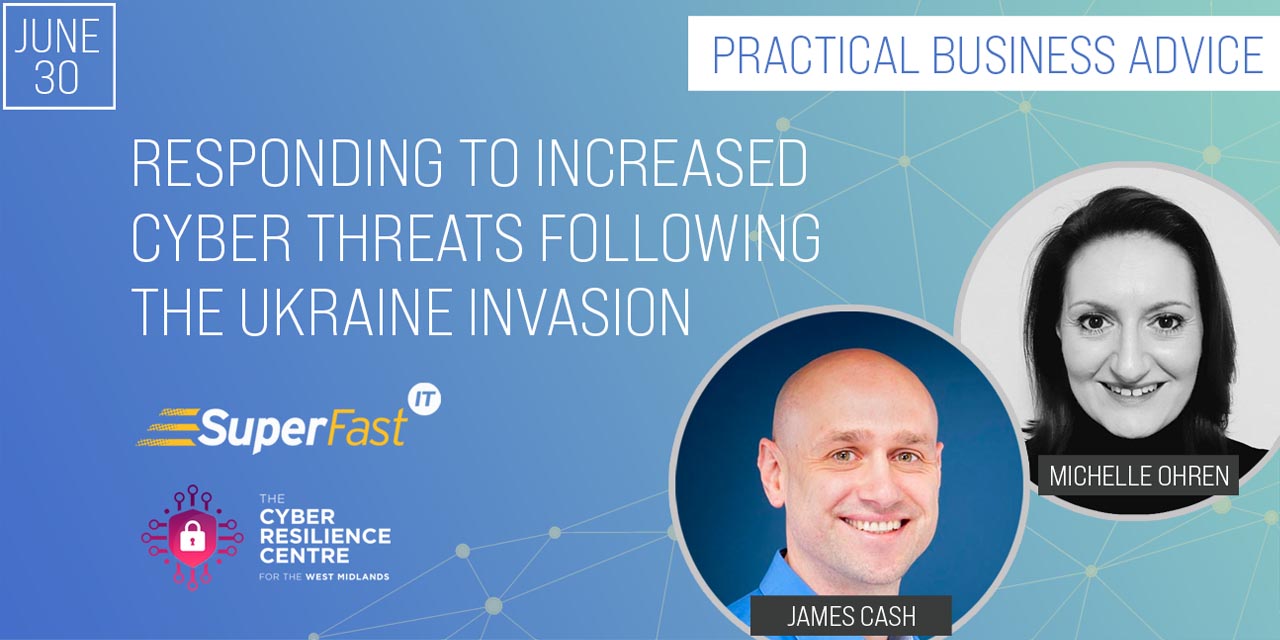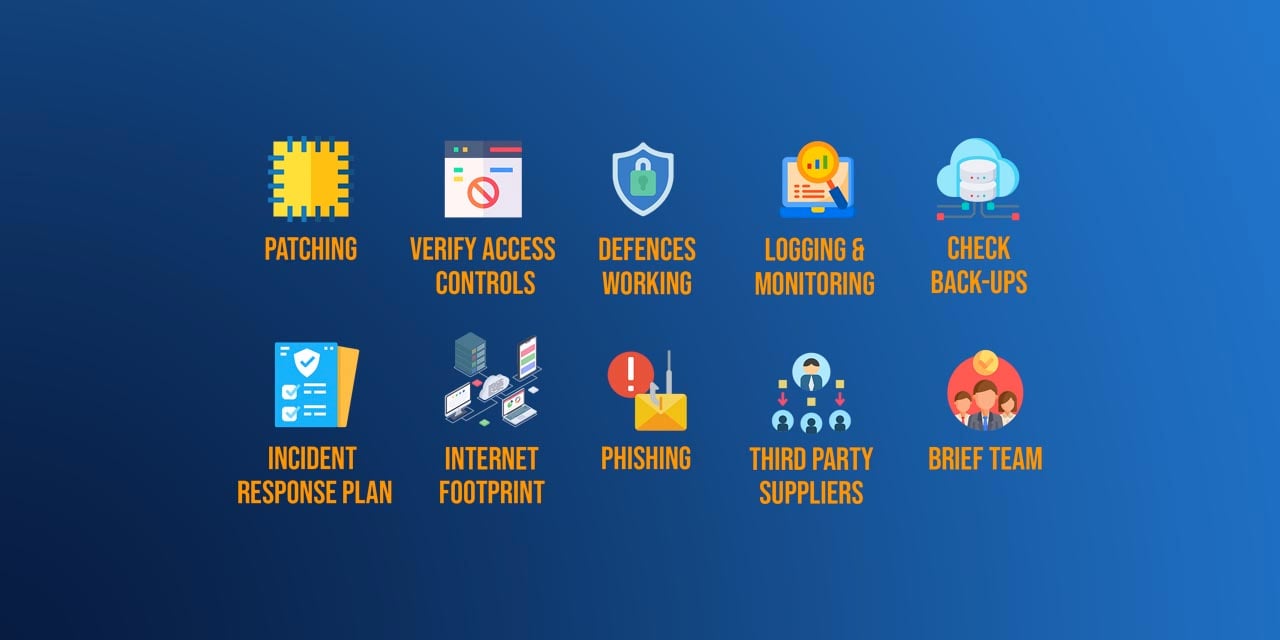Supercharge Your Small Business with the Power of AI and ChatGPT
Unless you've been living on a remote island without internet access, you've probably heard of artificial intelligence (AI) and ChatGPT. It has the...

In the high-stakes game of digital security, the tables have turned for companies once within the crosshairs of sophisticated hackers. The past narrative of relentless cyber attacks compromising sensitive information is becoming a relic of the past for those who've embraced a groundbreaking solution. The critical change lies not in technology alone, but in the strategic partnership with Managed Service Providers (MSPs) that specialise in cybersecurity. An MSP's unparalleled expertise and resources offer a robust defence against cyber threats, yielding a secure and resilient IT infrastructure for their clients.

This transformation isn't solely about outmanoeuvring adversaries. It's a story of empowerment—businesses gaining access to top-tier cybersecurity capabilities without the traditional investment in overwhelming resource allocation. By outsourcing their cybersecurity needs, companies have found a sweet spot in balancing protection and cost, enabling them to channel savings back into their core operations. The expertise brought forth by these MSPs has led to not just prevention but a speedy and precise response to incidents, ensuring minimal disruption and maintaining client trust. This approach has proven paramount, as MSPs help businesses stay ahead of regulations and compliance, safeguarding their reputation in an increasingly digitised world.
Cyber threats have metamorphosed significantly over the years. Early forms of computer security concerns were mostly centred around basic viruses and malware that aimed to disrupt individual systems. However, as reliance on technology grew, so did the complexity and impact of cyber threats.
In the late 1990s and early 2000s, hackers began launching more sophisticated attacks such as worms and Trojans, which could replicate themselves and infiltrate multiple systems across networks. The objective was no longer just to cause nuisance but to gain unauthorised access to sensitive data.
The Rise of Cyber Crime Networks
2000s:
2010s:
2020s:
The proliferation of cyber criminal networks further illustrates the evolution. These groups utilise an array of techniques to perpetrate financial fraud, intellectual property theft, and even manipulate political processes.
================================
Grade your organisational risk with our comprehensive cybersecurity quiz.
🎯 Grade Your Organisational Risk: CLICK HERE
================================
Businesses and individuals are now faced with a barrage of targeted attacks designed not just to steal information but also to sabotage operations. Cybersecurity must continually adapt to these evolving threats—this is where Managed Service Providers (MSPs) come into play. By outsourcing cybersecurity, organisations can leverage the expertise and innovative solutions offered by MSPs to stay ahead of cyber criminals.
In today's interconnected world, the story of a business facing cyber threats is all too common, but transformation is attainable through strategic partnership with a Managed Service Provider (MSP). Here's how one company rewrote their cybersecurity narrative.
The first step towards transformation is acknowledging vulnerabilities. The company in question had antiquated firewalls and lax access protocols, a recipe for a security breach. Through meticulous risk assessment, the MSP identified critical weaknesses ranging from outdated software to insufficient data encryption.
It took one significant breach for the company to realise the true cost of underestimating cybersecurity. Post-incident, there was no choice but to elevate security to a top company priority. The MSP's intervention was instrumental, deploying state-of-the-art tools and enforcing policies that ensured robust security and compliance with industry standards.
In an era where cyber threats are escalating, transferring cybersecurity responsibilities to a specialised Managed Service Provider (MSP) is a decisive manoeuvre for safeguarding business assets.
Companies today are recognising that cybersecurity is not just a technical challenge, but a strategic imperative. The expertise and resources required to combat sophisticated cyber threats can be overwhelming for an in-house IT team. By outsourcing, businesses gain access to:
Choosing an MSP is a decision that requires careful consideration. Important factors include:
By taking these criteria into account, businesses can partner with an MSP that offers a robust approach to their cybersecurity needs, turning what was once a liability into a strategic advantage.
Outsourcing IT services to a Managed Service Provider (MSP) with expertise in cybersecurity can transform a vulnerable network into an impenetrable fortress. They utilise cutting-edge tools and strategies to ensure safety and efficiency.
An MSP delivers Advanced Threat Protection (ATP) employing a comprehensive suite of tools designed to detect, analyse, and neutralise cyber threats before they penetrate the network. Key components include:
Continuous Monitoring and Response ensures that threats are identified and addressed promptly, round-the-clock. The MSP implements a robust methodology that includes:
Outsourcing cybersecurity marries deep human expertise with state-of-the-art technology, forming an impregnable defense against cyber threats.
Cybersecurity is not just about technology; it's about people who can wisely utilise it. Managed Service Providers (MSPs) assemble a team of seasoned security professionals with years of experience in identifying and mitigating cyber threats. These experts come equipped with:
In tandem with human expertise, advanced technology is essential for effective cyber defense. MSPs utilise a suite of cutting-edge tools that typically include:
Utilising these technologies, MSPs create a fortified security posture that addresses the myriad of cyber threats faced by businesses today.
Outsourcing to a Managed Service Provider (MSP) presents a tactical advantage in augmenting cost-effectiveness. Two core aspects that drive financial efficiency are reducing overheads and channelling investments towards growth rather than post-incident recovery.
Managed Security Services significantly lower the overhead costs associated with maintaining an in-house cybersecurity team. By utilising an MSP, businesses eliminate the need for:
Choosing an MSP also redirects financial resources towards prosperity instead of recuperation. This is manifested in:
When a cyberattack strikes, the response time and actions taken are critical for minimising impact. Outsourcing to a modern Managed Services Provider (MSP) can transform an organisation's ability to deal with such threats promptly and effectively.
Managed Services Providers equip businesses with state-of-the-art mitigation strategies, ensuring swift identification and action against threats. These MSPs employ advanced threat intelligence and automated response systems. For instance, they quickly isolate affected systems, apply patches, and use forensic analysis to identify the attack vectors.
The primary objective of an MSP post-incident is to restore operations and reduce financial repercussions. An effective MSP handles incident responses by:
Recovery protocols and temporary solutions allow businesses to sustain operations and service delivery, therefore mitigating potential revenue losses and preserving customer trust. The cost savings here are substantial, both in terms of direct IT expenditure and in indirect costs, such as reputation repair and regulatory penalties.
In an ever-evolving digital landscape, adhering to compliance standards and regulations is crucial for maintaining the integrity of customer data and avoiding legal repercussions.
The legalities surrounding data protection are intricate, with legislation such as the GDPR and the DPA 2018 at the forefront. An adept Managed Service Provider (MSP) must be well-versed in these regulations, ensuring that a business's operations are consistently compliant. Regular audits, accompanied by comprehensive risk assessments, are vital in identifying any potential legal shortfalls.
Customer data protection is paramount, affecting trust and corporate reputation. Robust encryption methods and secure data practices are essential in safeguarding personal and sensitive information. An MSP leverages advanced technologies and protocols to protect data, such as:
By remaining current with legal requirements and prioritising data security, businesses can avoid costly breaches and uphold customer confidence.
Building resilient cybersecurity through outsourcing to a Managed Services Provider (MSP) not only enhances technical defences but also bolsters client trust and fortifies brand reputation. These intangible assets are crucial for long-term business success and competitive standing.
Customer confidence is the bedrock of any business relationship. When clients know their data is protected by state-of-the-art security measures implemented by a specialised MSP, their trust in the company increases. This trust translates into customer loyalty and retention, which are integral to a business's uninterrupted operations and growth. Noteworthy is the fact that a breach can lead to a direct loss of clients, whereas robust cybersecurity can lead to an uptick in client retention rates.
An impeccable brand reputation is a powerful asset that takes years to cultivate. Companies that outsource their cybersecurity demonstrate a commitment to protecting their client's data, which, in turn, enhances their brand image. They are perceived as industry leaders who prioritise client safety, thereby gaining a competitive edge. Businesses gain not just through risk mitigation but also by leveraging their cybersecurity stance as a unique selling proposition.
Before outsourcing cybersecurity
After outsourcing cybersecurity
Securing a technological future demands both foresight and adaptability. Embracing a proactive cybersecurity stance enables organisations to fortify their defences ahead of potential threats.
Organisations must continually evolve their cybersecurity measures to counteract ever-changing threats. Cybersecurity professionals from Managed Service Providers (MSPs) are essential for keeping pace with the latest risks. They employ advanced threat intelligence tools and conduct regular risk assessments to ensure defences are robust and vulnerabilities are addressed promptly.
An informed team is the first line of defence against cyber incidents. MSPs implement comprehensive training programmes to enhance team members' understanding of cybersecurity. These programmes are designed to instil best practices in digital hygiene and foster a company culture focused on security.
Outsourcing cybersecurity to a specialised Managed Services Provider (MSP) transforms a company's digital defence. Efficient and cost-effective, it's the strategic move from vulnerability to a state of resilience. The MSP's advanced tools and expertise fortify a company’s IT infrastructure, making it a cybersecurity stronghold.
Companies that have experienced breaches become virtually untouchable once under the MSP's watchful eye. Custom-tailored defence strategies meet specific industry and regulatory requirements, enhancing overall security posture.
Return on Investment (ROI) improves as businesses no longer need to bear the cost of a full in-house IT security team. Training and updating an internal team becomes the MSP's responsibility. This ensures the company stays ahead of threats, leveraging the latest in cybersecurity trends and technologies.
The focus shifts from surviving attacks to thriving in a secure environment. The MSP's continuous evolution in cybersecurity measures ensures that a company's defences are always one step ahead. Outsourcing to an MSP isn't just about mitigating risks — it's about securing a company's future in the digital landscape.
When considering the benefits of outsourcing cybersecurity, it is essential to understand the details of how a managed service provider (MSP) can fortify an organisation's defences, enhance cost-efficiency, and provide innovative solutions against cyber threats.
An MSP brings to the table a wealth of specialised knowledge that allows for the application of layered security strategies. They continuously monitor networks, swiftly identify vulnerabilities, and implement updated defence mechanisms to thwart cyber threats.
Outsourcing to cybersecurity experts helps streamline IT expenditures by mitigating the need for in-house security infrastructure and full-time IT staff. Organisations only pay for the services they need, which reduces overhead costs and allows for more predictable budgeting.
IT service providers utilise cutting-edge technologies such as artificial intelligence and machine learning for predictive analysis and real-time threat intelligence. This proactive angle ensures systems are constantly learning and evolving to outpace cybercriminal activities.
An MSP's expertise in the field fortifies a company's cybersecurity posture through robust risk assessments, the formulation of bespoke security policies, and the execution of comprehensive employee training programmes to guard against social engineering and other human-factor threats.
Businesses that outsource benefit from ongoing access to expert knowledge, stay abreast of legislative compliance, and can reallocate internal resources to focus on their core operations, enhancing productivity and innovation.
Managed services adopt a proactive stance by continuously analysing potential risks and employing strategic updates to security infrastructure. This forward-looking approach means potential threats are addressed before they materialise into breaches, thereby enhancing the company's long-term cyber resilience.
Grade your organisational risk with our comprehensive cybersecurity quiz.
🎯 Grade Your Organisational Risk: CLICK HERE
================================
Our quiz is more than just a set of questions; it's a window into your organisation's cybersecurity posture. By participating, you're not just testing your knowledge; you're evaluating your organisation's readiness against cyber threats.
As your trusted MSP, we're committed to helping you navigate the complex world of cybersecurity. This quiz is the first step in a journey towards a more secure digital environment for your business.
Take the Quiz Now and pave the way for a safer digital future for your organisation. Remember, in the realm of cybersecurity, knowledge is not just power – it's protection.

Unless you've been living on a remote island without internet access, you've probably heard of artificial intelligence (AI) and ChatGPT. It has the...

Responding to Increased Cyber Threats Following the Ukraine Invasion Thu 30th June 2022Virtual networking event ...

{% video_player "embed_player" overrideable=False, type='hsvideo2', hide_playlist=True, viral_sharing=False, embed_button=False, autoplay=False,...